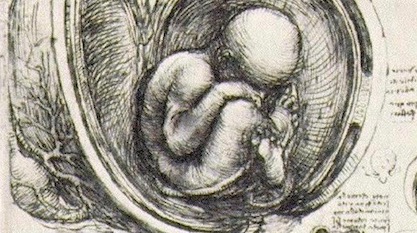 Culture & Ethics
Culture & Ethics
 Medicine
Medicine
What the Abortion Debate Tells Us About Integrity in Science

The debate about abortion in our country is obviously a matter of great importance for public policy and for the lives of our children and our neighbors who are caught in the controversy. But the abortion debate is also important for a clear view of the integrity of our scientists. This understanding of the integrity of the scientific profession has far-reaching consequences for the relationship between science and public policy.
Science has quite a bit to contribute to our debate about abortion as a matter public policy. Of course the abortion debate also includes questions of ethics, questions of legality, and questions of prudent public policy. These other questions can only be answered thoughtfully on a foundation of scientific facts about human life.
What does the abortion debate teach us about the integrity of the scientific community? It teaches this: the scientific issues regarding the beginning and nature of human life were settled in the early 19th century. Human life begins at fertilization of the egg by the sperm. After that point, every fertilized egg is a distinct separate human being. There is no scientific debate about this fact. It is a fact as certain as gravity or that the earth orbits the sun.
Genuine Settled Science
So how has the scientific community contributed to this debate? Much of the scientific contribution has been, to put it mildly, reprehensible. Despite the fact that it is a scientific fact that each human life begins at fertilization, many scientists have argued publicly and strenuously that children in the womb — from zygote to embryo to fetus to emerging newborn — are not human beings. They have been described as tissue, parts of the mother’s body, etc., and some scientists go so far as to describe them as a kind of parasite or cancer.
I reiterate: the science regarding the beginning of human life is settled and has been settled for 200 years. There is no debate on the science. There remain profound questions of ethics, law, and public policy regarding respect for human life, which are valid issues for debate. There remain no questions regarding the science of the beginning of human life.
Where are the major scientific organizations on this issue? Why has not the National Academy of Sciences, the American Association for the Advancement of Science, or the American Medical Association stated clearly and publicly the basic scientific fact that human life begins at fertilization? The answer is obvious: many scientists in these organizations are willing to do what it takes to advance their ideology, and scientists who do understand and embrace the truth about the beginning of human life are generally too cowardly to press the issue. It’s an enormous scandal.
A Profound Problem
So what are we to make of a scientific profession in which scientific experts consistently distort the science of human life? The conclusion we should draw from this is obvious: there is a profound problem with integrity in the scientific profession. Science is everywhere tainted by ideological bias that has no basis in evidence or reason.
The take-away lesson from the scientists who twist the truth about the nature of human life to advance their own personal opinions about abortion is this: claims about science in public policy debates are not to be trusted. There is a deep corruption in the scientific profession, and on matters such as abortion, as well as matters such as evolution, climate, and cosmology, scientists should be understood as narrowly educated specialists who have no qualms whatsoever about publicly misrepresenting scientific facts in order to advance their own personal ideology.
We have much to learn from the abortion debate about the scientific profession, and it’s ugly.
Image: View of a child in the womb, by Leonardo da Vinci, c. 1489.
